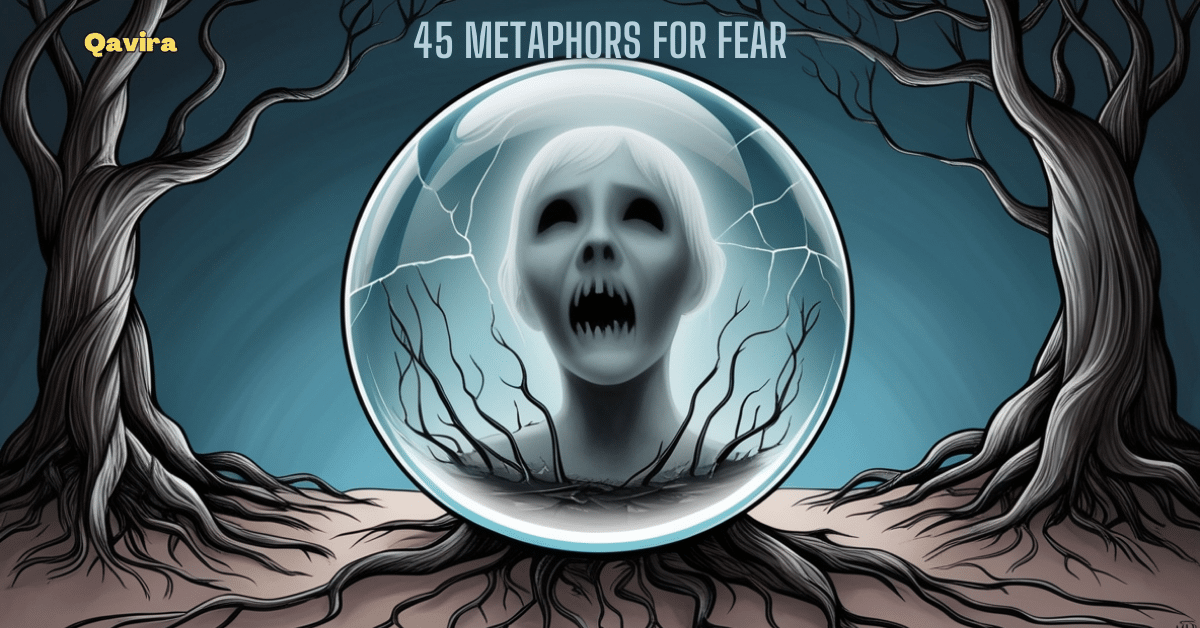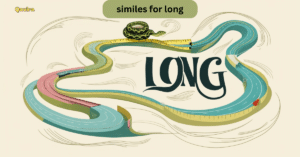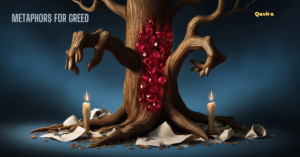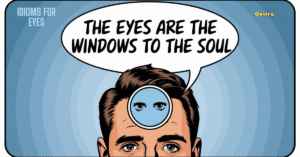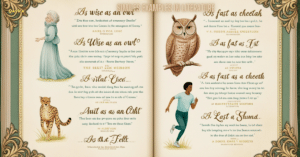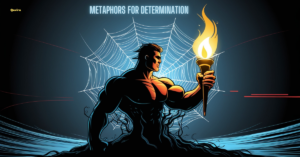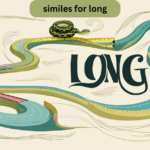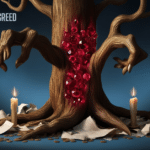Metaphors for fear, you’ll uncover the rich tapestry of emotions that this powerful feeling evokes. Fear can be a shadow lurking in the corners of your mind or a storm that suddenly takes over your emotions. Understanding these metaphors can help you articulate your experiences and connect with others who share similar feelings.
As you dive into this article, you’ll find relatable phrases that make fear more tangible and easier to discuss. Each metaphor invites you to reflect on your own fears, empowering you to confront them head-on. Let’s embark on this journey together!.
Metaphors for Fear
1. Fear is a shadow
- Meaning: This metaphor suggests that fear is always present, lurking just out of sight, often unnoticed until it looms larger.
- In a Sentence: As she walked through the dark alley, fear was a shadow that followed her every step.
- Other Ways to Say: Fear is an unseen presence, anxiety is a constant companion, dread is a lurking figure.
2. Fear is a storm
- Meaning: This metaphor depicts fear as a tumultuous force, capable of overwhelming emotions and creating chaos in one’s mind.
- In a Sentence: The news of the accident hit him like a storm, leaving him breathless with fear.
- Other Ways to Say: Fear is a whirlwind, anxiety is a tempest, dread is a raging storm.
3. Fear is a thief
- Meaning: This metaphor indicates that fear robs individuals of joy, confidence, and peace of mind.
- In a Sentence: Self-doubt crept in like a thief, stealing her courage before the big presentation.
- Other Ways to Say: Fear is a robber, anxiety is a pickpocket, dread is a confidence snatcher.
4. Fear is quicksand
- Meaning: This metaphor suggests that fear can trap and immobilize people, making it difficult to move forward.
- In a Sentence: His fear of failure felt like quicksand, pulling him deeper into inaction.
- Other Ways to Say: Fear is a sinking pit, anxiety is a mire, dread is a bog.
5. Fear is a maze
- Meaning: This metaphor portrays fear as a complex, confusing structure that can leave people feeling lost and disoriented.
- In a Sentence: She felt like she was navigating a maze of fear, unsure of which path would lead to safety.
- Other Ways to Say: Fear is a labyrinth, anxiety is a puzzle, dread is a complex web.
6. Fear is a dark cloud
- Meaning: This metaphor suggests that fear can cast a shadow over one’s thoughts and emotions, making everything seem bleak.
- In a Sentence: The dark cloud of fear hung over him, obscuring his ability to think clearly.
- Other Ways to Say: Fear is an overcast sky, anxiety is a looming storm, dread is a heavy fog.
7. Fear is a cage
- Meaning: This metaphor implies that fear can trap individuals, restricting their freedom and potential.
- In a Sentence: Her fear of rejection felt like a cage, keeping her from expressing her true feelings.
- Other Ways to Say: Fear is a prison, anxiety is a cell, dread is a confinement.
8. Fear is a wolf
- Meaning: This metaphor suggests that fear can be predatory, stalking its prey and ready to pounce at any moment.
- In a Sentence: The fear of failing exams was a wolf, lurking in the shadows, waiting to attack.
- Other Ways to Say: Fear is a predator, anxiety is a stalking beast, dread is a lurking animal.
9. Fear is a heavy weight
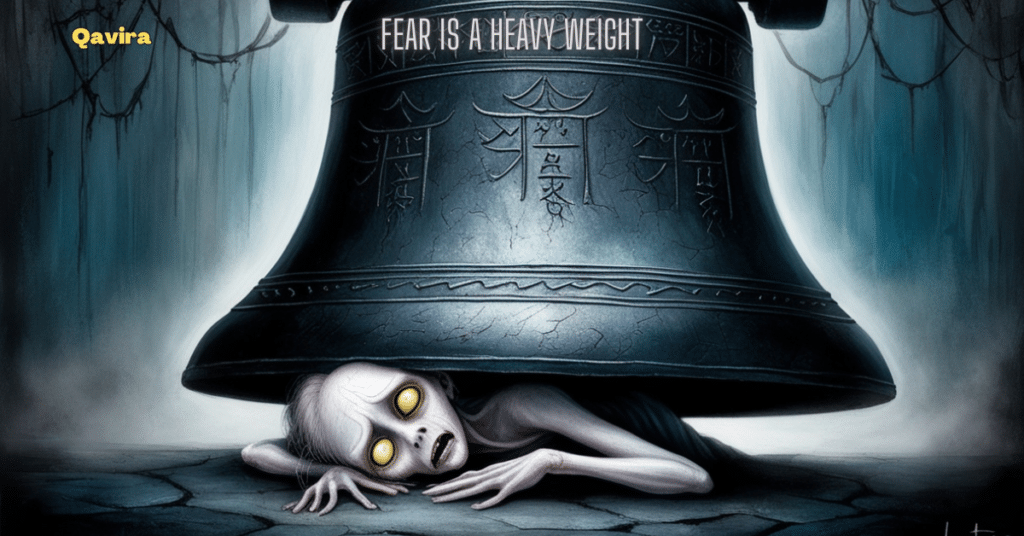
- Meaning: This metaphor conveys the burden of fear, indicating how it can make one feel physically and emotionally weighed down.
- In a Sentence: The heavy weight of fear sat on her chest, making it hard to breathe during the interview.
- Other Ways to Say: Fear is a burden, anxiety is a lead weight, dread is a heavy anchor.
10. Fear is a monster
- Meaning: This metaphor personifies fear as a terrifying creature that can seem larger than life, feeding off one’s insecurities.
- In a Sentence: The monster of fear loomed over him, making him doubt his every decision.
- Other Ways to Say: Fear is a beast, anxiety is a nightmare, dread is a terrifying figure.
11. Fear is a fire
- Meaning: This metaphor suggests that fear can ignite quickly and consume everything in its path if not managed properly.
- In a Sentence: Her fear of public speaking flared up like a fire, making her heart race and palms sweat.
- Other Ways to Say: Fear is a blaze, anxiety is an inferno, dread is a consuming flame.
12. Fear is an anchor
- Meaning: This metaphor implies that fear can hold individuals back, preventing them from moving forward in life.
- In a Sentence: His fear of change acted as an anchor, keeping him stuck in a job he no longer loved.
- Other Ways to Say: Fear is a weight, anxiety is a hindrance, dread is a restraint.
13. Fear is a mirror
- Meaning: This metaphor suggests that fear reflects inner insecurities and doubts, forcing individuals to confront their vulnerabilities.
- In a Sentence: Facing her fear was like looking into a mirror, revealing all the things she tried to hide.
- Other Ways to Say: Fear is a reflection, anxiety is a revealing image, dread is a clear view.
14. Fear is a maze
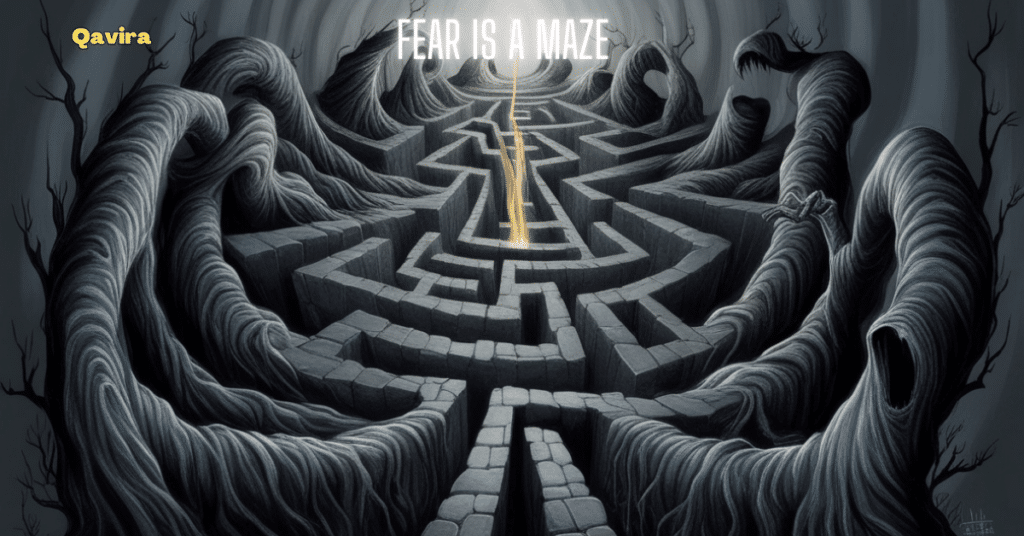
- Meaning: This metaphor emphasizes how fear can create confusion and uncertainty, leading to feelings of being trapped.
- In a Sentence: Navigating through her fear felt like wandering through a maze with no exit in sight.
- Other Ways to Say: Fear is a labyrinth, anxiety is a puzzle, dread is a winding path.
15. Fear is a wall
- Meaning: This metaphor symbolizes how fear can block progress and isolate individuals from their goals.
- In a Sentence: The wall of fear kept him from pursuing his passion for art.
- Other Ways to Say: Fear is a barrier, anxiety is a blockade, dread is a fortress.
16. Fear is a sinking ship
- Meaning: This metaphor suggests that fear can lead to a sense of impending doom, making one feel as if they are going down with a sinking vessel.
- In a Sentence: His fear of failure felt like a sinking ship, dragging him deeper into despair.
- Other Ways to Say: Fear is a doomed vessel, anxiety is a capsizing boat, dread is a leaky craft.
17. Fear is a fog
- Meaning: This metaphor indicates that fear can obscure clarity and understanding, making it hard to see the way forward.
- In a Sentence: The fog of fear clouded her judgment, making even simple decisions feel overwhelming.
- Other Ways to Say: Fear is a haze, anxiety is a mist, dread is an obscuring cloud.
18. Fear is a monster under the bed
- Meaning: This metaphor suggests that fear is often irrational, lurking in the dark and feeding off our imagination.
- In a Sentence: He felt like a child again, convinced that fear was a monster under the bed waiting to strike.
- Other Ways to Say: Fear is an unseen terror, anxiety is a phantom, dread is a hidden creature.
19. Fear is a tidal wave
- Meaning: This metaphor conveys the overwhelming nature of fear, suggesting it can crash over you unexpectedly and with great force.
- In a Sentence: The tidal wave of fear hit him when he realized he’d forgotten his lines on stage.
- Other Ways to Say: Fear is a tsunami, anxiety is a flood, dread is a surge.
20. Fear is a bitter pill
- Meaning: This metaphor suggests that fear can be difficult to swallow, often requiring acceptance and confrontation to overcome.
- In a Sentence: Accepting his fear of rejection was a bitter pill he had to swallow to move forward.
- Other Ways to Say: Fear is a hard truth, anxiety is an unpleasant reality, dread is a tough lesson.
21. Fear is a tightrope
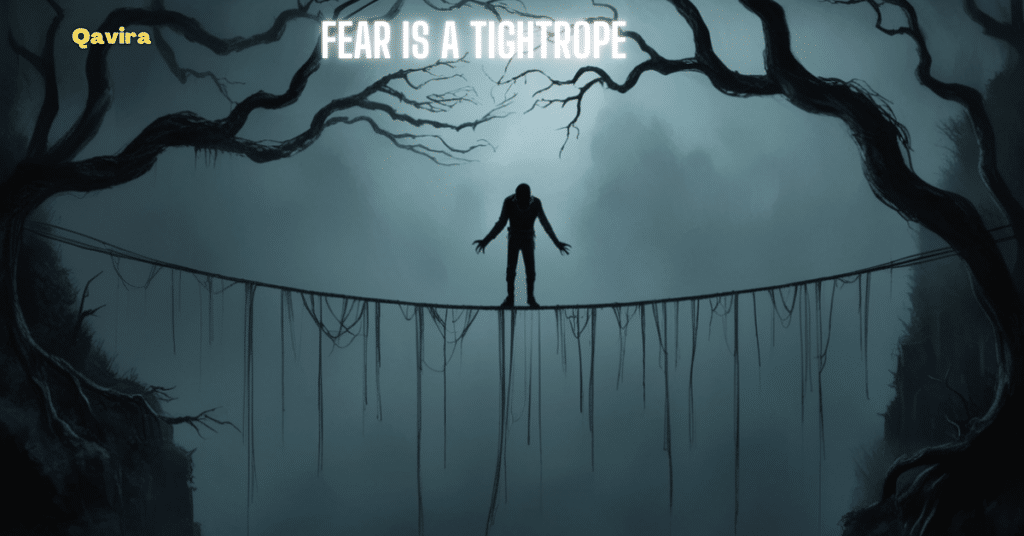
- Meaning: This metaphor implies that fear can create a precarious situation where one must carefully balance their emotions and actions.
- In a Sentence: Walking the tightrope of fear, she struggled to maintain her composure during the interview.
- Other Ways to Say: Fear is a balancing act, anxiety is a fine line, dread is a precarious journey.
22. Fear is a broken compass
- Meaning: This metaphor suggests that fear can lead to a loss of direction, making it hard to find the right path.
- In a Sentence: His fear of failure was like a broken compass, leaving him unsure of where to go next.
- Other Ways to Say: Fear is a lost guide, anxiety is a faulty map, dread is a confusing signal.
23. Fear is a prisoner
- Meaning: This metaphor conveys the idea that fear can confine individuals, limiting their choices and freedom.
- In a Sentence: She felt like a prisoner of her own fear, unable to break free from its grip.
- Other Ways to Say: Fear is a captive, anxiety is a detainee, dread is an inmate.
24. Fear is a thorn
- Meaning: This metaphor suggests that fear can cause pain and discomfort, often unexpectedly.
- In a Sentence: The thorn of fear pricked at her heart as she prepared to share her story.
- Other Ways to Say: Fear is a hurt, anxiety is a sharp pain, dread is an irritating reminder.
25. Fear is a dark alley
- Meaning: This metaphor evokes a sense of danger and uncertainty, suggesting that fear often leads to risky situations.
- In a Sentence: Facing her fear felt like walking down a dark alley with no idea what lay ahead.
- Other Ways to Say: Fear is a treacherous path, anxiety is a risky venture, dread is an ominous road.
26. Fear is a chasm
- Meaning: This metaphor suggests that fear can create a deep divide, separating individuals from their goals or desires.
- In a Sentence: The chasm of fear between her and her dreams felt insurmountable.
- Other Ways to Say: Fear is an abyss, anxiety is a gap, dread is a wide canyon.
27. Fear is a puppet master
- Meaning: This metaphor implies that fear can control actions and decisions, manipulating individuals like marionettes.
- In a Sentence: His fear was a puppet master, pulling the strings and dictating his every move.
- Other Ways to Say: Fear is a manipulator, anxiety is a controlling force, dread is a dominating influence.
28. Fear is a rollercoaster
- Meaning: This metaphor depicts fear as an unpredictable ride, full of ups and downs that can be thrilling yet terrifying.
- In a Sentence: Her emotions were a rollercoaster of fear, swinging from panic to calm in an instant.
- Other Ways to Say: Fear is a thrilling ride, anxiety is a wild journey, dread is a tumultuous path.
29. Fear is a wildfire
- Meaning: This metaphor suggests that fear can spread rapidly and uncontrollably if not contained.
- In a Sentence: The wildfire of fear consumed the room, leaving everyone on edge.
- Other Ways to Say: Fear is an uncontrolled blaze, anxiety is a spreading flame, dread is a rampant fire.
30. Fear is a chain
- Meaning: This metaphor conveys the idea that fear can bind individuals, restricting their freedom and potential.
- In a Sentence: The chain of fear kept him from pursuing his dreams, holding him back at every turn.
- Other Ways to Say: Fear is a bond, anxiety is a restraint, dread is a shackle.
31. Fear is a ticking clock
- Meaning: This metaphor suggests that fear can create a sense of urgency and pressure, making time feel limited.
- In a Sentence: The ticking clock of fear made her heart race as she prepared for the test.
- Other Ways to Say: Fear is a countdown, anxiety is a time bomb, dread is a looming deadline.
32. Fear is a foghorn
- Meaning: This metaphor implies that fear can serve as a warning signal, alerting us to potential dangers.
- In a Sentence: The foghorn of fear blared in his mind, reminding him of the risks ahead.
- Other Ways to Say: Fear is a warning bell, anxiety is an alarm, dread is a caution signal.
33. Fear is a storm cloud
- Meaning: This metaphor suggests that fear can obscure clarity and cast a shadow over one’s thoughts.
- In a Sentence: The storm cloud of fear loomed over his head, threatening to rain down doubt.
- Other Ways to Say: Fear is a dark omen, anxiety is a foreboding sign, dread is an impending storm.
34. Fear is a maze of mirrors
- Meaning: This metaphor suggests that fear can create illusions and distortions, making it hard to find the truth.
- In a Sentence: She felt trapped in a maze of mirrors, where every reflection of fear twisted her reality.
- Other Ways to Say: Fear is a confusing reflection, anxiety is a distorted image, dread is a misleading path.
35. Fear is a volcano
- Meaning: This metaphor indicates that fear can build up pressure and erupt unexpectedly, causing chaos and destruction.
- In a Sentence: His fear of confrontation was a volcano waiting to erupt, ready to unleash his pent-up emotions.
- Other Ways to Say: Fear is an explosive force, anxiety is a simmering cauldron, dread is a molten threat.
36. Fear is a ticking time bomb
- Meaning: This metaphor suggests that fear can create a sense of impending doom, ready to explode at any moment.
- In a Sentence: Her anxiety felt like a ticking time bomb, just waiting for the right moment to go off.
- Other Ways to Say: Fear is a latent explosion, anxiety is a pressure cooker, dread is a volatile situation.
37. Fear is a distant thunder
- Meaning: This metaphor implies that fear can build gradually, creating an ominous feeling before it strikes.
- In a Sentence: The distant thunder of fear rumbled in his chest, signaling that something was about to go wrong.
- Other Ways to Say: Fear is an approaching storm, anxiety is a foreboding sound, dread is an ominous sign.
38. Fear is a sinking feeling
- Meaning: This metaphor conveys the physical sensation of fear, suggesting an overwhelming sense of dread or anxiety.
- In a Sentence: She had a sinking feeling in her stomach as she awaited the results of her exam.
- Other Ways to Say: Fear is a heavy heart, anxiety is a grim realization, dread is a leaden sensation.
39. Fear is a riptide
- Meaning: This metaphor suggests that fear can pull individuals under, making it difficult to escape its grasp.
- In a Sentence: The riptide of fear dragged him deeper into despair, making it hard to find his way back to safety.
- Other Ways to Say: Fear is an undertow, anxiety is a strong current, dread is a powerful force.
40. Fear is a tight noose
- Meaning: This metaphor implies that fear can constrict and suffocate, leaving individuals feeling trapped and helpless.
- In a Sentence: The tight noose of fear wrapped around his throat as he faced his audience.
- Other Ways to Say: Fear is a choking grip, anxiety is a constricting force, dread is a suffocating embrace.
41. Fear is a relentless wave
- Meaning: This metaphor suggests that fear can crash over you repeatedly, making it hard to find stability.
- In a Sentence: The relentless wave of fear washed over him, leaving him gasping for breath.
- Other Ways to Say: Fear is a crashing tide, anxiety is a surging flood, dread is a pounding surf.
42. Fear is a flickering light
- Meaning: This metaphor suggests that fear can create uncertainty and doubt, making it hard to see the way forward.
- In a Sentence: The flickering light of hope was overshadowed by the fear that clouded his mind.
- Other Ways to Say: Fear is a wavering beacon, anxiety is a dimming flame, dread is a faltering glow.
43. Fear is a boulder
- Meaning: This metaphor conveys the idea that fear can be an enormous weight, making it difficult to move forward.
- In a Sentence: The boulder of fear sat heavily on her chest, making every breath a struggle.
- Other Ways to Say: Fear is a massive stone, anxiety is a heavy rock, dread is an immovable object.
44. Fear is a silent scream
- Meaning: This metaphor suggests that fear often goes unvoiced, trapped inside, creating internal turmoil.
- In a Sentence: His fear manifested as a silent scream, echoing in his mind while he smiled on the outside.
- Other Ways to Say: Fear is a muted cry, anxiety is an unheard shout, dread is a quiet plea.
45. Fear is a bitter taste
- Meaning: This metaphor indicates that fear can leave a lingering sense of discomfort and unease, much like a bad flavor.
- In a Sentence: The bitter taste of fear lingered in her mouth as she prepared for the big reveal.
- Other Ways to Say: Fear is an unpleasant flavor, anxiety is a sour note, dread is a foul sensation.
Quiz: 45 Metaphors for Fear
What does the metaphor “Fear is a shadow” suggest?
- A) Fear is always present but often unnoticed.
- B) Fear is a source of light.
- C) Fear is related to joy.
- D) Fear is a temporary emotion.
Answer: A) Fear is always present but often unnoticed.
In the metaphor “Fear is a storm,” what does the storm represent?
- A) Calmness and peace.
- B) A sudden and overwhelming force.
- C) A source of happiness.
- D) A gentle breeze.
Answer: B) A sudden and overwhelming force.
What does the metaphor “Fear is a thief” imply?
- A) Fear enhances your confidence.
- B) Fear can rob you of joy and peace of mind.
- C) Fear is a friend.
- D) Fear is beneficial for growth.
Answer: B) Fear can rob you of joy and peace of mind.
In the metaphor “Fear is quicksand,” how does it affect individuals?
- A) It helps them move forward.
- B) It traps and immobilizes them.
- C) It provides clarity.
- D) It encourages risk-taking.
Answer: B) It traps and immobilizes them.
What does “Fear is a maze” suggest about fear?
- A) It always leads to a clear path.
- B) It creates confusion and uncertainty.
- C) It is easy to navigate.
- D) It brings joy and excitement.
Answer: B) It creates confusion and uncertainty.
What feeling does the metaphor “Fear is a heavy weight” convey?
- A) Freedom and lightness.
- B) Joy and happiness.
- C) Burden and discomfort.
- D) Excitement and thrill.
Answer: C) Burden and discomfort.
In the metaphor “Fear is a monster,” what does the monster represent?
- A) A comforting presence.
- B) A terrifying and controlling force.
- C) A friendly companion.
- D) A source of laughter.
Answer: B) A terrifying and controlling force.
What does the metaphor “Fear is a rollercoaster” imply about the experience of fear?
- A) It is predictable and stable.
- B) It is a thrilling ride with ups and downs.
- C) It always leads to calmness.
- D) It is a boring experience.
Answer: B) It is a thrilling ride with ups and downs.
What does “Fear is an anchor” suggest about its impact on individuals?
- A) Fear helps them move forward.
- B) Fear holds them back and restricts progress.
- C) Fear is a source of strength.
- D) Fear encourages exploration.
Answer: B) Fear holds them back and restricts progress.
In the metaphor “Fear is a ticking time bomb,” what does the bomb represent?
- A) A sense of safety.
- B) Impending doom and pressure.
- C) A peaceful situation.
- D) A joyful surprise.
Answer: B) Impending doom and pressure.
Conclusion
metaphors for fear provide a unique lens through which we can understand and articulate our deepest anxieties. By exploring these vivid expressions, you can gain insights into how fear manifests in your life and the lives of others. Whether it’s a shadow, a storm, or a monster, each metaphor captures the essence of fear, making it relatable and easier to confront. Embracing these metaphors not only enhances your communication but also empowers you to navigate your fears with greater clarity and resilience.

Carla Jones is an expert blogger in English Language Teaching, sharing innovative strategies and insights to empower educators and enhance language learning experiences for students worldwide.
